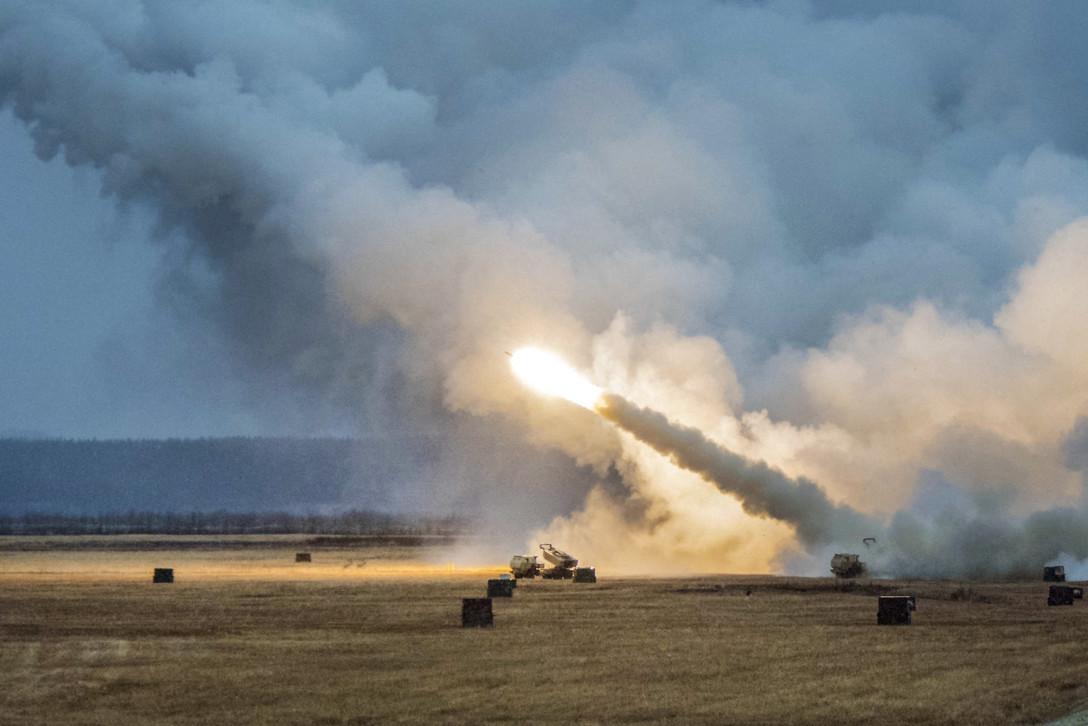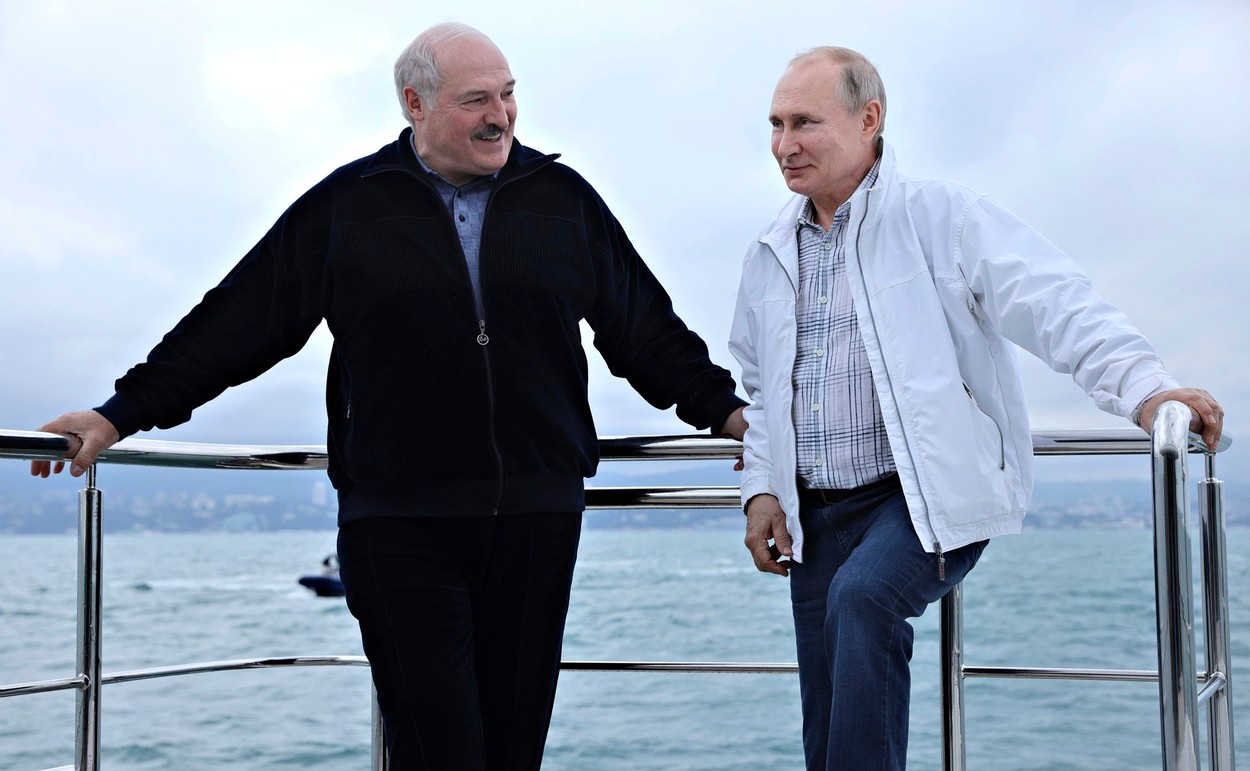
Stopping the expansion of NATO, supplying weapons to Ukraine, “denazification” and “demilitarization” of the neighboring country – these are the tasks of the “special military operation” announced by Russian President Vladimir Putin on February 24, which turned out to be a disaster for Russia. .
To try to determine how successful Russia has been, it is worth comparing the reasons for Putin’s invasion of Ukraine with what happened after the start of the “special military operation” on February 24, says Professor Ruth Dearmond of the military department at King’s College London. extensive analysis published on Tuesday on his page Twitter.
In a speech he gave in the early hours of the day he launched the invasion, he listed several reasons for starting a war against Ukraine.
The first is to stop the expansion of NATO and reduce the alliance’s military presence on the eastern flank.
“The goal of NATO expansion didn’t make much sense at the time, because there was no significant prospect of Ukraine joining NATO, as everyone knew,” Dayermond recalls.
Beyond Ukraine, we see how Vladimir Putin’s attempt to stop NATO expansion worked: the war convinced two countries known for their historical neutrality, Finland and Sweden, to ask to join the North Atlantic alliance.
Here it is worth mentioning that Finland has a common border with Russia with a length of more than 1,300 kilometers. If you can’t imagine Ukraine being welcomed back into NATO, it’s hard to understand how what happened could have turned out worse for Russia.

Ukraine received HIMARS systems (PHOTO: ABACA / Abaca Press / Profimedia)
Vladimir Putin and the “demilitarization” of Ukraine
Another NATO-related goal of forcing the alliance out of Eastern European countries, as demanded by the Kremlin in supposed “security guarantees” of the West, is also not going too well for Russia.
In addition, there were two specific goals of Putin regarding the geopolitical and security position of Ukraine: to stop its transformation into “anti-Russian” territory and to stop the supply of Western weapons to Kyiv.
Again, it’s hard to imagine that Ukraine could have become more “anti-Russian” than it is now after 6 months of war, during which Russian forces leveled entire cities and committed numerous mass murders and other war crimes.
“From the point of view of ending the supply of NATO weapons to Ukraine, there are obviously weapons that Ukraine would like, but did not receive due to fears of escalation. But I’m not sure that this will be much comfort to the Russian government, given the staggering scale of Western military aid that Kyiv has received,” Deyermond says.
Turning to the goals that played a huge role in Russian propaganda, the so-called “denazification” and demilitarization of Ukraine, the professor says that the former was a “disgusting lie” from the very beginning.
“The last 6 months of crimes against humanity by the Russians, genocidal actions and rhetoric, and the rapid transition within the country to something very similar to fascism make this goal look like a projection,” she notes.

Putin at the summit of the CSTO leaders (PHOTO: Serhii Bobilyov / TASS / Profimedia Images)
Even Russia’s traditional allies left Moscow with the sun
In addition to President Vladimir Putin’s clear goals for the war against Ukraine, Russia’s overall national interests have also been seriously affected by the “special military operation.”
In addition to the accelerated growth of dependence on China, the King’s College professor points to three other big problems that Moscow is currently facing:
First, after the collapse of the USSR, Russia has always considered maintaining its influence on the countries of the former Soviet bloc (with the exception of the Baltic states) as a foreign policy goal and a security priority.
But the war with Ukraine dealt a heavy blow to these desires. Ukraine is obviously now more distant from Russia than at any time since independence. The Republic of Moldova is on the way to join the EU together with Ukraine.
Despite Putin sending troops to support Kazakh President Kassym-Jomart Tokayev in January amid unprecedented protests that have erupted in the former Soviet republic, the Kazakh leader has refused to support Russia’s war of aggression and said he would respect sanctions imposed by the West. against this, relations between the two countries have probably reached their lowest point since the collapse of the USSR.
Other states that were once part of the Soviet Union and are now members of the Collective Security Treaty Organization (CSTO), the Moscow-led military alliance, have also avoided expressing support for the “special military operation.”
For example, in early March, only Belarus voted against the UN resolution condemning Russian aggression against Ukraine, other allies of Russia abstained.

Alexander Lukashenko and Putin on a yacht ride in the Black Sea (PHOTO: Profimedia Images)
A humiliation that is difficult for the Kremlin to swallow
But even Belarus was not always a useful client state, even if it allowed Moscow to attack Ukraine from its territory. Despite reports of Russian pressure and Moscow’s urgent need for help, Lukashenko decided not to send Belarusian troops to Ukraine.
“The situation is humiliating for the Kremlin: if it is not possible to shut down even Lukashenka, what will happen to Russia’s regional hegemony? And if Russia is not a regional hegemony, what will happen to the Russian national identity rooted in the belief that it has the status of a great power?” – Deyermond notes.
Second, the Russian government and Russian armed forces have always viewed maintaining a military presence in several key former Soviet states as a strategic priority.
Since 1991, the regions of the Caucasus and the Black Sea have been considered as having special importance for Russia. The war against Georgia in 2008 and the illegal annexation of Crimea in 2014 increased Russia’s military presence in the region, which appears to have been the goal of both operations.
Although Russia’s control over Georgia’s two breakaway regions, Abkhazia and South Ossetia, has not changed, the sight of Russian troops rushing to fight in Ukraine calls into question the strength of Moscow’s military capabilities.
And if Russia continues to lose in Ukraine, its control over these two territories will be tenuous, even if the current Georgian government shows no sign of wanting to intervene in any way.

Russian tanks were destroyed in Ukraine (PHOTO: Yefrem Lukatsky / AP – The Associated Press / Profimedia)
The war in Ukraine destroyed the myth of Russia’s military capability
“As far as Crimea is concerned, it’s hard to overestimate the importance of what’s happening here for the Russian armed forces,” says the King’s College professor, adding that perhaps the most important goal of Moscow’s armed forces related to Ukraine after the collapse of the USSR was to achieve control over the port of Sevastopol to predict the power of the Black Sea Fleet.
It is also related to the third key goal of Russia’s national interests: confidence in its armed forces.
“Russia’s ability to influence has always been based on coercion, not attraction, despite its attempts to develop “soft” power. Its great power largely depends on its military potential. And all this was crushed by the humiliation of the Russian armed forces in Ukraine,” explains Dearmond.
After the complete failure of the initial goal of quickly capturing key Ukrainian cities, the military-political command in Moscow announced more modest goals for the “liberation” of Luhansk and Donetsk regions.
But a few months later, the army sent by Vladimir Putin to Ukraine was unable to do so, and in August the front line was almost unchanged.
Deyermond argues that Putin has destroyed the myth of the might of his armed forces for a war born of his own vanity.
“As a rule of thumb, if you expect to capture key cities in 3 days, but 6 months later they have your beat-up tanks in the center of their capital, you’re not quite the military force you thought you were. – says Ruth Dearmond, professor of the military department of King’s College London.
“Putin and his entourage have so far managed to achieve the exact opposite of everything they wanted from their criminal war. Whatever happens from now on, it’s hard to imagine that they will be able to undo the damage done to Russia and themselves,” she concluded.
Follow the latest events of the 182nd day of the war in Ukraine LIVETEXT on HOTNEWS.RO.
Source: Hot News RU
James Springer is a renowned author and opinion writer, known for his bold and thought-provoking articles on a wide range of topics. He currently works as a writer at 247 news reel, where he uses his unique voice and sharp wit to offer fresh perspectives on current events. His articles are widely read and shared and has earned him a reputation as a talented and insightful writer.